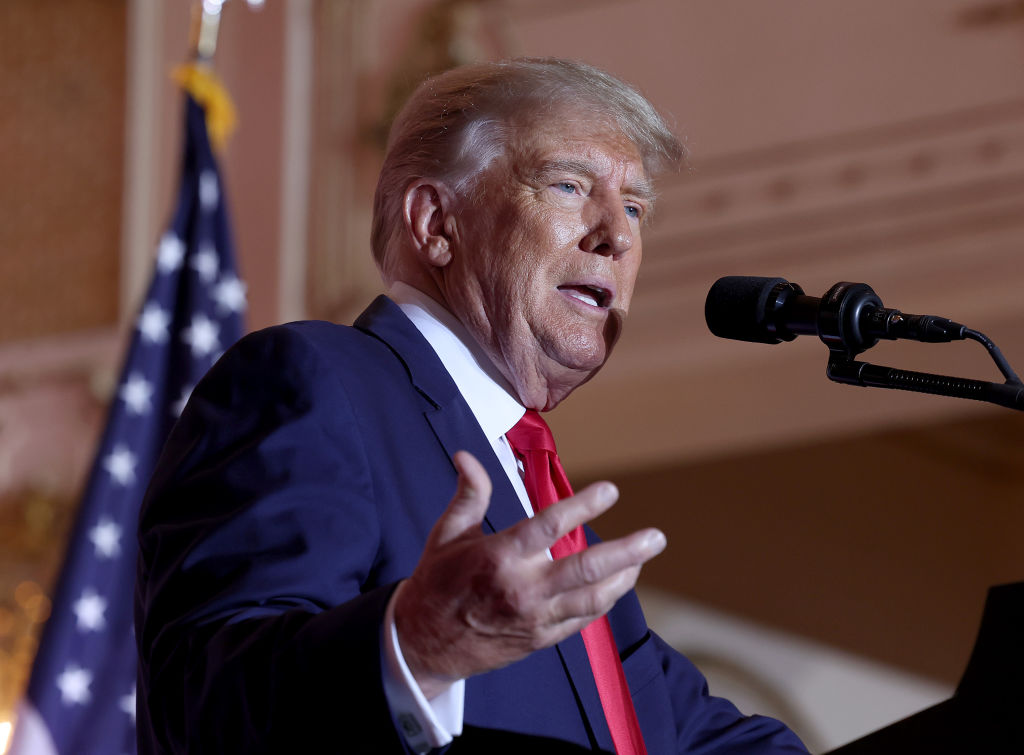Donald Trump has some well-proven abilities — the ability to cost Republicans winnable elections for the House and Senate, the ability to undermine citizens’ confidence in election outcomes (without providing solid proof the elections were stolen) and the ability to foment some of America’s worst, anti-democratic elements.
Trump’s status as party leader contributed to Republicans’ anemic showing in 2022. He was hardly alone in dragging down the party, but he contributed to the losses in two ways.
First, the candidates he pushed over the finish line in the primaries disappointed in the general election. His only clear-cut victory was the endorsement of J.D. Vance in Ohio, who won the Senate seat but finished well behind the vote total for the popular Republican governor, Mike DeWine. Trump’s candidate for governor of Pennsylvania, a purple state Republicans need for the presidency, won a woeful 42 percent — with some 750,000 votes less than the winner, Josh Shapiro. His hand-picked Senate candidate, Mehmet Oz, finished 250,000 votes behind the winner, John Fetterman, a far-left candidate who had suffered a serious stroke a few months earlier. Oz won the Republican primary only after garnering Trump’s support and defeating David McCormick, a strong general election candidate similar to Virginia’s Glenn Youngkin. Trump’s visible presence in Pennsylvania ultimately cost his party a crucial seat, just as his intervention in Georgia cost Republicans the Senate majority in January 2021 and pushed the Biden presidency much further to the left.
Trump hurt Republicans in another way this year. His continuing “election denial” tainted the entire party. He steadfastly refused to endorse candidates who said Joe Biden won fairly in 2020. How did voters like that? Well, one indication is that all five candidates who denied the outcome of the last election lost their contests to supervise their states’ next elections (as secretaries of state). For some reason, voters don’t trust them to administer those contests honestly.
While Trump keeps looking back in anger, he poses big problems for his party going forward. The reason is straightforward: to win, Republican candidates need, firstly, Trump voters in the primary and general election and secondly, educated, independent voters in November. Polls show many independents support Republican policies but are repulsed by Trump’s bombast, his narcissism and his refusal to accept constitutional norms after losing in 2020. The conundrum is that independents won’t vote for Trumpian candidates in the general election, while Republican primary voters won’t nominate candidates who hold him at arms-length. A crucial question for the GOP is whether Trump will continue to hold such sway over primary voters — and continue to cost them general elections.
Democrats certainly hope so. Their position should be obvious from their cynical intervention in Republican primaries this year. Democratic donors poured millions into Republican primaries to make sure Trump’s candidates won, even as they branded those same candidates “threats to democracy.” Democrats believed those candidates would be the easiest to beat in November — and they were right.
For Republicans, the question is not only whether anyone can beat Trump for the presidential nomination, but how much damage the former president can inflict on his opponents in the contest. If history is any guide, Trump will use scorched-earth tactics, coupled with personal smears (“DeSanctimious,” “Little Marco” and so on). Will those attacks still persuade his base? And how much lasting damage will they do if anyone defeats him?
Trump is running because he thinks he will win. He’ll pay no attention to party bigwigs who oppose him. He knows they always have. He will run hard, hold big rallies, and launch full-throated, personal attacks on every potential opponent. He’s certainly proven he’s ready and willing to do that.

























